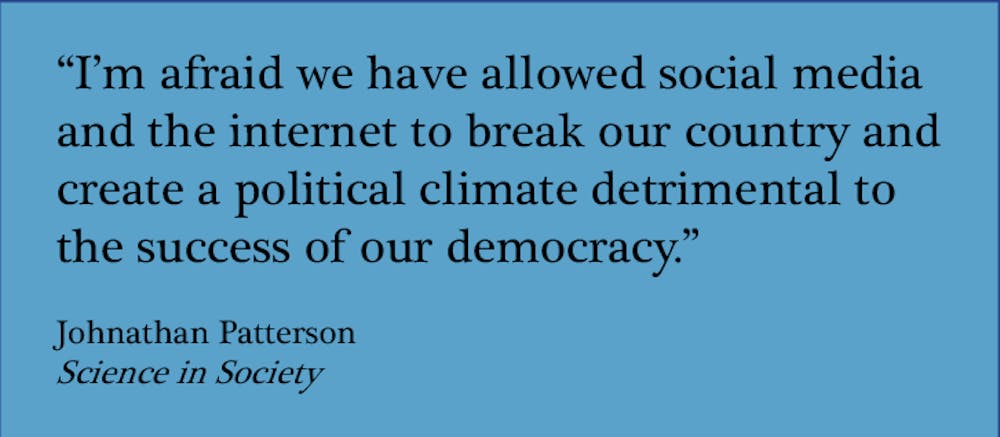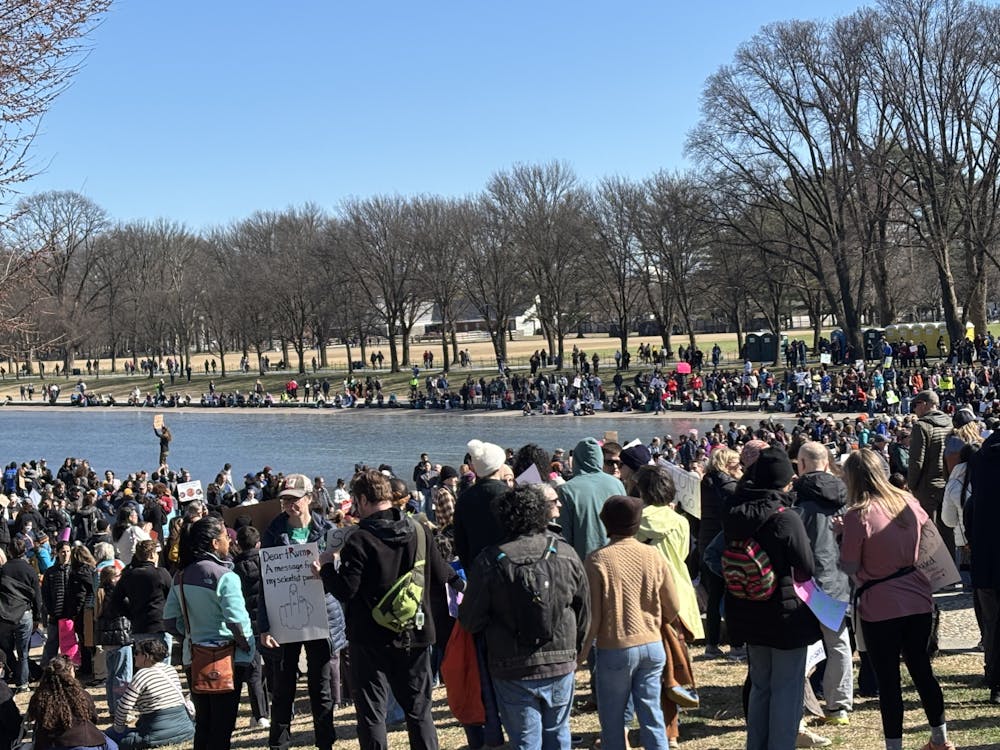
It should come as no surprise that the political climate we live in today is unique, to say the least. A reality television star as president, a foreign power trying to hack its way into American democracy and a nearly unprecedented level of divisiveness define the current political landscape.
Perhaps, though, what is most unique about the political environment we find ourselves in now, is the role the internet and social media play in shaping it. The internet has connected us in ways never before imaginable, but with that newfound connection comes new challenges.
Ironically, the increased closeness the World Wide Web has created also serves to heighten the divisions in our society. Rather than having conversations with the other side, most of us are content with hiding behind our keyboards and slinging insults at each other instead of opening ourselves to debate.
We are more interested in listening only to what we want to hear, dragging down our public discourse and lessening our commitment to the truth. This effect, needless to say, dominates American politics today and has created a culture that is harmful to our democracy.
The Trump Presidency is very much the Twitter Presidency, not just because of the President’s frequent use of the social media app, but in a larger sense, because of the culture the administration embodies. A culture that is defined by bitter partisanship, incoherent arguments, blatant disregard for facts and intense, almost prideful, ignorance.
The creation of this culture, which fundamentally contrasts with the benefits of the internet, is unsurprising. Since the advent of the Information Age, we, as a society, have always found ways to misuse our communication and information advances against our own best interests.
That is not to say we have not used the internet and social media to try and better society, because we have. From greater access to educational information, to better and farther reaching news coverage and circulation, to social media-driven political movements like the Women’s March or Never Again MSD (Marjory Stoneman Douglas), the internet has undoubtedly allowed us to reach new heights.
However, the story of the internet and social media has always seemed to be one step forward, two steps back.
For every Crash Course episode, there is a Jake/Logan Paul video. For every online article published by the New York Times or Washington Post that reaches readers that would never take the time to pick up a paper, there is Breitbart and Russian-planted fake news. For every #MeToo, there is a Trump Twitter temper tantrum.
You want to know how Trump became President, how our politics have become this contentious? You want to know what happened? The internet and social media, that’s what happened.
This vitriolic turn in our politics seems, to me, like just the latest evolution of this trend of technological mismanagement. We have created a society full of people too afraid to have their own views challenged, too closed off to opposition.
Most of us just use the internet’s reach to search out like minds and use its anonymity as a shield when attacking those who disagree. Social media has definitely increased the volume of conversation, but it has lowered the quality of debate.
We now have an electorate that would elevate an underqualified and disgraceful manchild to the Office of President of the United States because almost no one who voted for him bothered to fact check anything spilling out of his mouth.
We have a democracy now vulnerable to foreign hacking because we have a citizenry that is so disinterested in sincere debate on the issues that they would rather believe instigating Russian bots than listen to the opposing views of their fellow Americans.
I’m afraid we have allowed social media and the internet to break our country and create a political climate detrimental to the success of our democracy. I mentioned earlier that our divides are deeper than ever; but looking back at our country’s history, this division is not unheard of.
What actually makes our current predicament so unprecedented is that so many people don’t seem interested in closing those divides. The internet and social media should be used to open minds, and although they have done just that in some ways, they have also managed to close them in others.
I don’t blame the technology though. The technology, albeit impressive, is useless without us. Machines don’t make history (take Global Security Politics, you’ll get it), we do. The internet and social media are simply tools for our use, and if we continue to use them to shelter ourselves rather than challenge our ideas and tear each other down rather than build ourselves up, we are making a mistake.
We have let social media and the internet make our politics meaner and shallower than ever, stoke ever-deepening divides, and undermine our democracy because that is the very culture we have created for ourselves.

















